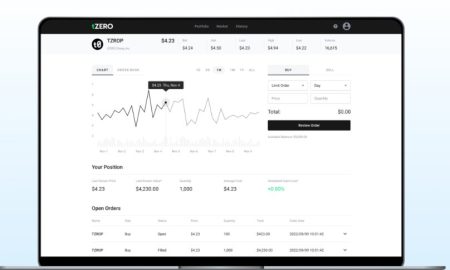
As the new year approaches, cryptocurrency investors may seek money-saving strategies for tax season. Investors may also need support with navigating changes in the crypto industry such as the recent collapse of the FTX Crypto Exchange.
In his new Amazon best-selling book, Cryptocurrency in a Nutshell, Abhinav R. Soomaney aims to support crypto investors in maximizing financial success. Soomaney writes that the book explains “factors affecting cryptocurrency prices; tokens versus coins, types of crypto wallets and how investors can keep their coins safe; comparison between the stock market and crypto market; the importance of the white paper; the types of forks and what happens in each case; details about p2p (peer-to-peer) trading [and] cryptocurrency tax audits; how investors or traders can make investing tax efficient; staking rewards versus bank interest rates, taxation on staking rewards (and) DeFi (Decentralized Finance) crypto tax guide.”
Acknowledging Bitcoin inventor Satoshi Nakamoto as foundational to cryptocurrency’s success, Soomaney’s book also helps readers understand the parameters of blockchain technology.
Millions of investors have come to the cryptocurrency industry due to its blockchain-assisted decentralized alternatives to traditional banking. Cryptocurrency users conduct transactions that are public, nonreversible, timestamped, and more immediate than traditional processes.
Soomaney has supported 400-plus clients with cryptocurrency tax calculations. He also works as the Managing Partner at CryptoTax International and Senior Associate at Neumeister & Associates, LLP.
Advice for Saving Money on Taxes
Soomaney recommends that cryptocurrency investors consider multiple money-saving strategies. “Minimize capital gains by using the Highest-In-First-Out (HIFO) tax calculation method that allows you to use the highest cost basis pool against the first sale until that inventory pool is completely exhausted. Maintaining accurate records for tokens transferred from one platform to another will help to determine whether the capital gain is Short-Term Capital Gain or Long-Term Capital Gain and accurately report taxes,” said Soomaney.

According to Soomaney, HIFO can minimize capital gains but can increase tax obligations by shifting from long-term to short-term. “If someone generally trades everything within a year, then HIFO is preferred—but if someone has a mixture of temporal trading strategies, then it is hard to tell which is best without running different scenarios,” noted Soomaney.
Soomaney also advises maintaining accurate records of tokens that are transferred across platforms. This will help determine short-term versus long-term capital gains in addition to ensuring accurate tax reporting.
Taxes vary depending on which attribute of cryptocurrency is being used. DeFi (Decentralized Finance), NFTs (Non-Fungible Tokens), mining, and staking all yield different money-saving tips.
“With crypto taxes, there are challenges quite often. NFT tax calculations is a recent challenge,” said Soomaney. “When NFTs are transferred from one wallet to another and sold via OTC (over-the-counter), it becomes extremely difficult for us as accountants to track. To overcome this, we have integrated an IT team that plugs in codes to pull appropriate information directly from the blockchain using transaction ID, transaction hash, and Etherscan links.”
As multitudes of people have cashed out their cryptocurrencies, the industry at large is being impacted. Soomaney’s team seeks to guide investors through every stage of the crypto tax process
Investors can learn more by visiting: https://www.cryptotax.co.in/cryptocurrency-in-a-nutshell and https://www.neumeistercpa.com/cryptocurrency-in-a-nutshell/
Written in partnership with Shannon Sparks


























